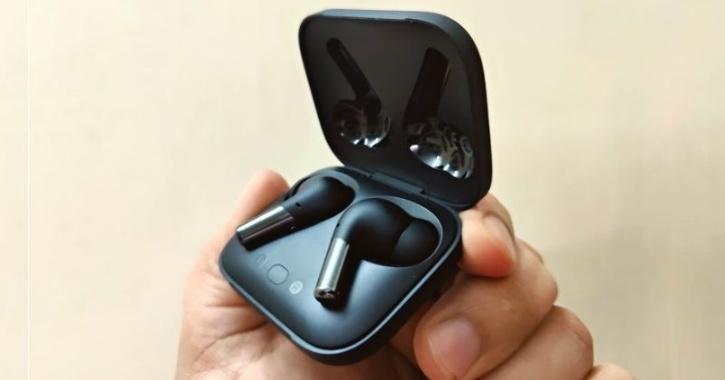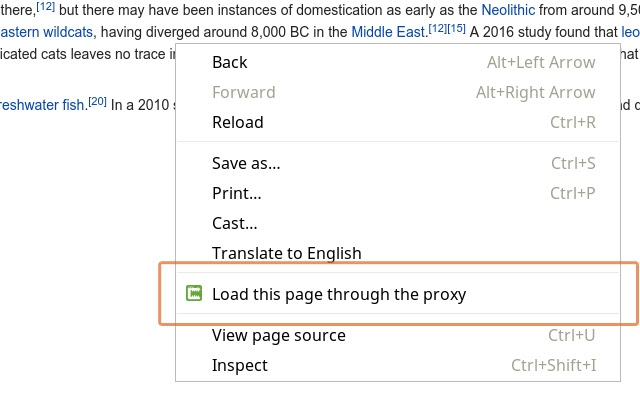
I Got Your Ip
6 Basics Things to Know About IP Addresses
The “IP” part of IP address stands for “Internet Protocol. ” The “address” part refers to a unique number that gets linked to all online activity you do…somewhat like a return address on a letter you’d send out. (All this happens in milliseconds. )
That’s the end of today’s lesson. At least it should be.
Because from this point on, it gets complicated fast. And confusing. Information technology (IT) is crazy stuff and it’s best left to those who have to deal with computers and networks.
Still, we’re all on the Internet these days, and it seems we’re always connected through our personal computers, laptops or mobile devices. And every time you go on the Internet, an IP address is right there, working for you.
And with so much obscure information (and misinformation) out there about the IP address, it’s helpful to know the basics.
You’ve got connections.
Your computer is hooked up to the Internet, one way or the other. When you go online for email, to shop or chat, your request has to be sent out to the right destination, and the responses and information you want need to come back directly to you.
An IP address plays a significant role in that.
You and your computer actually connect to the Internet indirectly: You first connect to a network that is 1) connected to the Internet itself and 2) grants or gives you access to the Internet.
That network might be your Internet service provider (ISP) at home, or a company network at work, or a wireless network at a hotel or coffee shop when you’re on the road. But with millions of computers on the Internet, how can your single computer jump right in and get you your work or personal emails and more without any problems?
Protocols are Protocols
To make sure you can do your thing on the Internet, your computer’s networking software is hardwired to follow a list of built-in networking standards and rules (yes, protocols) to connect to Internet, and to swap information and data back and forth.
One of those networking protocols on your computer, the Internet Protocol, is responsible for addressing, delivering and routing your online requests precisely. It attaches an “electronic return address” to all your online requests and activity for you. The address it uses is the IP address for your connection.
So long, IP address. It was nice while it lasted.
When you’re at home, an IP address is assigned to your computer by your Internet service provider (think Time Warner Cable, Cox Communications, or AT&T). Since they are the ones giving you access to the Internet, it’s their role to assign an IP address to your computer. Your Internet activity goes through them, and they route it back to you, using your IP address.
But don’t get attached to it. Don’t tattoo your IP address to your arm, because it’s not really yours. Even at home it can change if you do something as simple as turn your modem or router on and off. Or you can contact your Internet service provider and they can change it for you.
You can’t take it with you.
Plus, if you go on vacation and take along your laptop, your home IP address doesn’t go with you. It can’t, because on vacation you’ll be using another network to connect to the Internet.
So, when you’re at a coffee shop in another city or state (or just down the road) and you’re using their WiFi to get your email, you’re using a different (and temporary) IP address, one assigned to your laptop on the fly by the ISP for that coffee shop’s Internet provider.
Same thing happens when you travel. As you move from the airport to your hotel to the local coffee house, your IP address will change each and every time.
But you don’t have to think about it at all, or open the hood of your computer and flip switches. It all happens thanks to the intelligent design behind the Internet, wireless networks and all those Internet Protocols your computer uses.
“One latte and an IP address to go, please. ”
You can see all this for yourself. Next time you’re using your laptop at a library, work or the corner store, just click on and check out the IP address you’re using.
And to learn a little more about IP addresses, read the other articles right here on this website.
Get hidden now. »» I want to hide my IP
Related Articles
What is an IP address (technical)
See information about an IP address?
How do I hide my IP address?
How do I change my IP address?

While working from home, is it a bad idea to give the company you work …
I work from home. Why would a company I am about to do some work for ask for my IP address? What would they need it for? Should I be worried? Thanks
Mark Buffalo22. 4k8 gold badges73 silver badges91 bronze badges
asked Feb 3 ’16 at 20:48
15
This seems to be a persistent question. IP addresses aren’t secrets. Every website you go to must know your IP address. There’s no reason to not give away your IP address.
Many companies have firewalls that only allow certain addresses through to certain ports. This is a relatively common way of controlling access to resources with minimal effort.
However, most people don’t have static IP addresses at home, and your IP address can suddenly change without notice. So just be aware that the IP you have today might not be the IP you have tomorrow.
answered Feb 3 ’16 at 20:54
Steve SetherSteve Sether21. 4k8 gold badges49 silver badges75 bronze badges
5
Why would a company I am about to do some work (working from home) for, ask for my IP address? What would they need it for? Should I be worried? Thanks
More than likely, they need to be able to white list your IP address, or IP range, to allow remote connections from your home. They need to know who’s on their network, and why. There’s nothing to worry about here.
Keep in mind, they will probably whitelist your dynamic IP range (likely 0-255), and not your actual IP address, unless it’s static.
answered Feb 3 ’16 at 20:51
Mark BuffaloMark Buffalo22. 4k8 gold badges73 silver badges91 bronze badges
12
Since you share your IP on every occasion in the web, there is no problem. Usually the reason for this is that they want to whitelist your IP in their firewall to allow you to remotely access them. Apart from that: Giving away your IP can not really harm you.
Even if that one company knows your identity and can consequentially relate your IP to you, this does not imply that any third party can do so. There is no problem in giving someone your IP if that person knew your identity in the first place, no additional information is given.
Other third parties cannot find your name and physical address from your IP address, and you can’t find it from theirs.
Well at last not without help.
We’ve seen that using a whois lookup on an IP address will tell you the ISP that owns it. It’s that ISP that can then tell you who, exactly, that IP address is connected to.
Note that while they can tell you, that doesn’t mean that they will. That information is typically regarded as private and ISPs are not keen on giving it out. What they can and do respond to, however, are court orders.
answered Feb 3 ’16 at 20:57
AdHominemAdHominem2, 98615 silver badges25 bronze badges
7
Firewall whitelisting is the obvious answer, audit whitelisting might be the other.
If we know in advance to expect you to dial in from IPs associated with the northeastern US and all of a sudden we see you’re successfully logging in from an IP address range in Guangdong, it’s going to raise red flags.
answered Feb 4 ’16 at 14:18
IvanIvan6, 2483 gold badges17 silver badges22 bronze badges
Sounds like a poor man’s VPN substitute. Normally the company’s VPN should allow connections from anywhere, and then use one or two different authentication methods (or more).
It makes perfectly good sense to firewall off large blocks like China, but micromanaging IP addresses is a continuous administrative overhead.
Plus there are plenty of users who don’t have static IP addresses, does your company update the ruleset every time someone blips their router/modem?
Answer No its not dangerous to share your IP, but it may be a sign of poor security practices masked by IP-based Access Lists.
answered Feb 4 ’16 at 6:15
CriggieCriggie4782 silver badges9 bronze badges
2
It’s a common practice: for restricting an outside access to VPN and other services. You should not worry and use a static IP address – for your own safety, btw. Because if even someone will steal your password – he will not have your IP likely.
answered Feb 3 ’16 at 23:03
Alexey VesninAlexey Vesnin1, 5431 gold badge7 silver badges11 bronze badges
Similar to [Alexey Vesnin] answer, we setup an external modem and firewall with an onion VPN connection. We configure the connection to run one specific application with username, password, and security questions. The firewall is configured for a static IP and mac address. If any other user/device tries to connect to that firewall it is kicked off. Employees can run personal internet through their own network card and firewall/router/modem. 1
answered Feb 4 ’16 at 4:25
LJonesLJones1071 silver badge6 bronze badges
I work for a marketing and advertising agency. My company needs my IP address so that they can track how many times I visit ours, and our clients’ websites (which we are monitoring to determine the effectiveness of our marketing and social media campaigns). Since I visit the site frequently to update blogs and edit content, my activities could skew the analytics.
answered Feb 18 ’16 at 5:35
ChrisChris111 bronze badge
It seems that it was not clearly stated yet in other answers:
If you connect to any of your company servers, then they will immediately know your IP anyway (as would any other webserver). Knowing your IP most likely will also allow them to know your physical location (not very precise though).
If you want to hide your location for some reason, then you would need to use a proxy or something, but then again, they might not allow you in.
answered Feb 8 ’16 at 12:30
If you work at home and routinely connect to your company’s website then they would have to know your IP since it would be in their logs. Who is doing the asking? Ask them for an explanation. No it is not routine as some have suggested. It may be that someone has been entering into their system to do something harmful and they are checking but, even then, all IPs are logged so it does not make any sense at all. Get an explanation and do not fail to mention that you understand that your IP should automatically appear in their logs so why do they have to ask for it.
answered Feb 7 ’16 at 3:46
1
Not the answer you’re looking for? Browse other questions tagged ip or ask your own question.

Is IP Grabbing Illegal? (All Questions Answered) – SmartyDNS
Your IP address is how you communicate with the Internet. Without it, that wouldn’t be possible.
Since it’s so important, you have to wonder – is IP grabbing illegal? Is it illegal to track an IP address?
We’ll answer those questions (and more) in this quick five-minute article.
Is IP Grabbing Illegal – Yes or No?
First, what is IP grabbing?
Well, it’s when someone uses a third-party service to “grab” your IP address. For example, they might use Grabify. It lets them create a link which they can send to you. If you access it, they’ll be able to see your IP address (alongside other information) on their end, like this:
If they click “More Info” on the right, they can even see your local IP address – the one your device uses on your network.
So is IP grabbing illegal?
Nope. There’s no specific law preventing someone from targeting you with an IP grabbing tool. Your IP address is pretty much public information at this point – just like your street address or phone number.
However, what someone does with your IP address can become illegal.
Here’s When IP Grabbing Is Against the Law
When the person grabbing it decides to DDoS you (basically, force you offline with cyber attacks). They can target your network with a DDoS attack because they know your IP address. In most places, doing this is illegal. DoS attacks, however, might not always be illegal because they’re weaker than DDoS attacks. If someone targets you with them constantly, though, you can contact the the person who grabbed your IP address tries using it to remotely hack your computer. Normally, an IP address isn’t enough to do that, but some skilled hackers could abuse Shared Resources to perform such a cyber attack. They could also use it to scan for open ports, which they then try to exploit to take over your someone uses IP grabbing to target you with phishing attacks. For example, they use it to find who your ISP is, and then they target them with phishing and vishing attacks.
Is IP Tracking Illegal?
It sounds like it should be, but it normally isn’t. It’s how websites keep track of their users, and how they display ads on the Internet. Businesses also use it for all sorts of B2B purposes (marketing, delivering services, analytics, etc. ).
As long as they meet any legal data processing requirements (like the GDPR), there are no conflicts with the law.
Is It Illegal for an Individual to Track Your IP Address?
Again, not really. They can freely use services like IP Logger or IP Tracker to keep tabs on your IP address. There’s no specific law against that.
But if they track your IP address for illegal purposes (harassment, stalking, DDoS-ing, cyber attacks, etc. ), it obviously goes against the law.
Should You Hide Your IP Address?
That’s up to you.
If you want to enjoy more privacy, and not have websites and random people track it, you should definitely do it. The same goes if you don’t want hackers abusing it or using it to DDoS you.
Plus, you get to enjoy other perks if you hide your IP address:
The ability to prevent anyone from finding out what country and city you are from + who your ISP is and what your ZIP code can bypass geo-restrictions and unblock different websites and online services – like Netflix or Pandora can also bypass firewalls at work and school. Also, you can get around government censorship since it also relies on firewalls to block hiding your IP address, you make it much harder for advertisers to track your online movements and spam you with personalized might be able to bypass geographical price discrimination. That’s when sites display different prices based on your geo-location. Hiding your IP address means websites won’t be able to see your geo-location rrenting becomes safer because wannabe hackers, lawyers, and copyright trolls can’t see your IP address in the swarm risk of a cybercriminal logging it and selling it on the dark bans won’t stop you from gaming online or posting on forums.
How Can You Hide Your IP Address?
These are the most convenient ways to do it:
1. Use a VPN
This is an online service that masks your IP address and encrypts your traffic. Here’s how the process works:
You download and install a VPN app on your use the app to connect to a VPN app and the server establish a secure connection between data that passes through that connection is encrypted end-to-end (only the client and server can encrypt/decrypt it) you visit a website, your connection requests go to it through the VPN website receives the requests from the VPN server, so it only sees the server’s IP else who tries looking up your IP address will also only see the server’s address.
Overall, a VPN is a great way to protect your privacy. Plus, by encrypting your traffic, it makes sure that:
Hackers can’t abuse vulnerable WiFi networks to monitor your and surveillance agencies can’t spy on your online can’t throttle your bandwidth anymore.
Looking for a reliable VPN service?
Here at SmartyDNS we offer high-speed VPN servers with military grade 256-bit AES encryption and highly secure VPN protocols (OpenVPN, SoftEther and IKEv2), and we we adhere to a strict no-log policy.
Our VPN servers act as proxy servers and we also offer Smart DNS service that allows you to unblock 300+ geo-restricted websites around the world.
We offer convenient VPN apps for Windows, Mac, iPhone / iPad, Android and Fire TV / Stick, and extensions for Chrome and Firefox browsers.
Special offer! Get SmartyDNS for $ 3. 7 per month!
Yes, and we’ll also get your 30-day money-back guarantee.
Сэкономьте 53% сейчас
2. Use a Proxy
A proxy server works similar to a VPN – it intercepts your connection requests to the web, and forwards them on your behalf. So any site you visit will only see the proxy server’s IP address.
However, unlike a VPN, proxies don’t offer powerful encryption. Sometimes, they don’t offer any at all.
So you get some privacy by hiding your IP address, but your traffic might not be secure. Also, if you use a free proxy that’s run by a malicious actor, they could log your data.
Generally, you should only use a proxy if you need to unblock a web page. If you need security on top of that, use a VPN. Instead of getting separate services, consider using a VPN whose servers double as proxies. It’s much cheaper.
3. Use Mobile Data or Switch WiFi Networks
If you’re on your mobile and want to change your IP address realf fast, try switching from WiFi data to mobile data.
You’ll use your mobile provider’s network instead of your WiFi network’s ISP, so you’ll get a different IP address.
What if you have a limited mobile data plan and normally use WiFi, though?
In that case, you can switch WiFi networks to change your IP address.
4. Ask Your ISP to Change It
They assigned you your current IP address, so you can ask them to change it. Maybe see if they can offer a dynamic IP address too (one that changes at regular intervals).
If you already have a dynamic IP address, you can usually change it by restarting your router.
Can You Hide Your IP Address with Tor?
Yes, you can do that. Just like a VPN, your connections will go to the Internet through a server. So everybody will see the IP address of the Tor server you’re using.
But we have to warn you – Tor has had and continues to have issues with IP leaks:
In 2017, the TorMoil issue leaked users’ IP might leak your IP address when you try to open Windows DRM rrent clients can sometimes leak your IP address. Certain file types (like PDFs) can bypass proxy settings, causing Tor to leak your IP address.
Besides that, you’ll also get pretty slow speeds because there are only around 6, 000 servers for over two million users.
Is IP Grabbing Illegal? The Bottom Line
Not unless the person grabbing your IP address wants to use it to do something illegal – like DDoS-ing you or hacking into your computer.
For normal purposes, IP grabbing (and tracking) is generally legal. If you’re worried it violates your privacy, use a VPN to hide your IP address. It’s the easiest and most convenient way to do it. If you know other methods to mask your IP address (other than the ones we already mentioned), go ahead and tell us about them in the comments.
Technology vector created by freepik –
Frequently Asked Questions about i got your ip
What does it mean to get your IP?
The “IP” part of IP address stands for “Internet Protocol.” The “address” part refers to a unique number that gets linked to all online activity you do… somewhat like a return address on a letter you’d send out. … And every time you go on the Internet, an IP address is right there, working for you.
Can you give your IP?
Every website you go to must know your IP address. There’s no reason to not give away your IP address. Many companies have firewalls that only allow certain addresses through to certain ports. … However, most people don’t have static IP addresses at home, and your IP address can suddenly change without notice.
What happens if someone grabs your IP?
They can target your network with a DDoS attack because they know your IP address. In most places, doing this is illegal. … If someone uses IP grabbing to target you with phishing attacks. For example, they use it to find who your ISP is, and then they target them with phishing and vishing attacks.Jun 19, 2020


